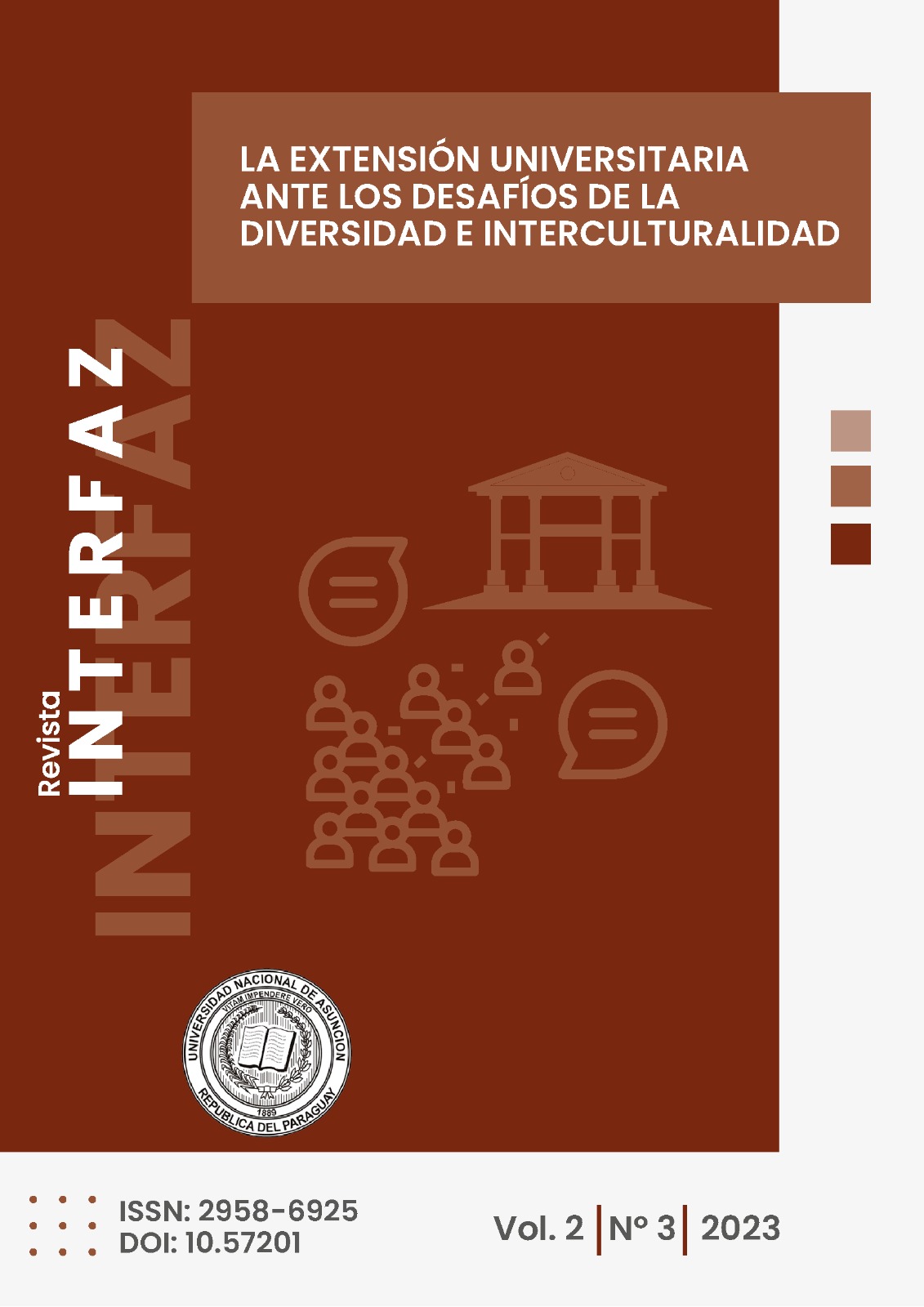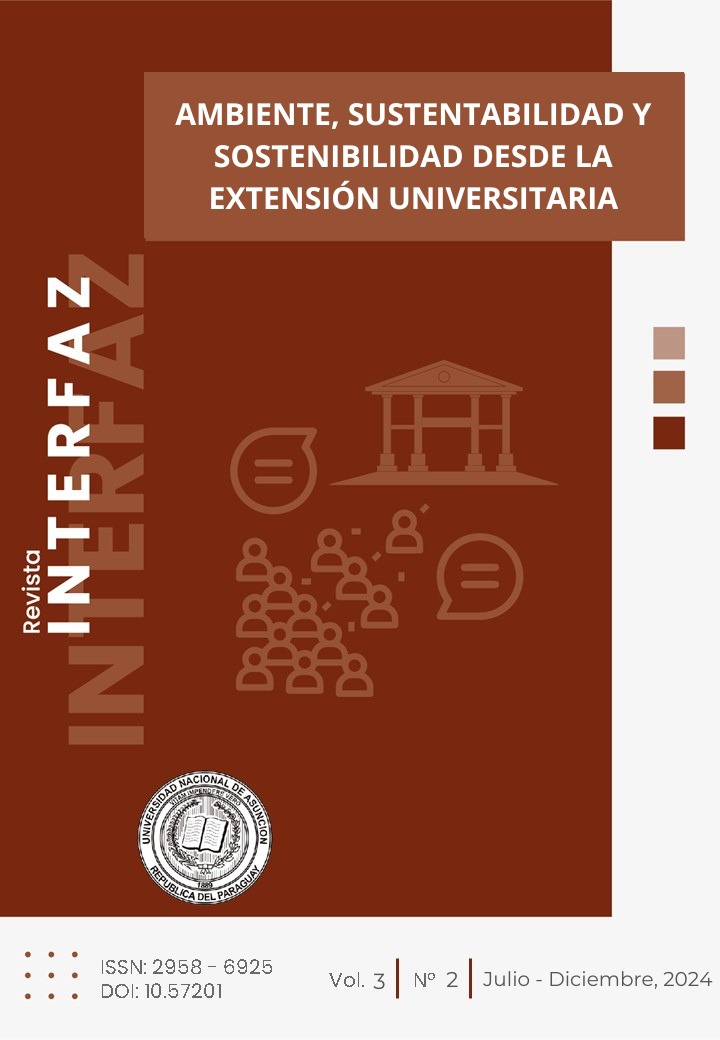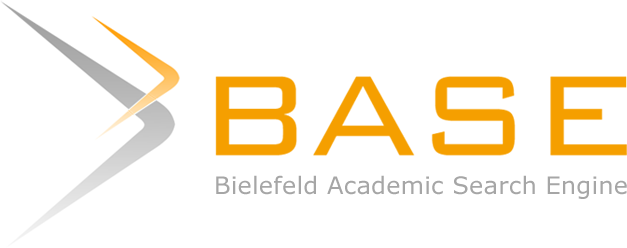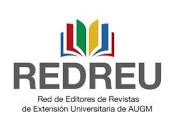Benefits of university extension in students’ education: a qualitative analysis
DOI:
https://doi.org/10.57201/interfaz.2023.2.2.3Keywords:
university extension, social connection, dimensions of vocational trainingAbstract
It was proposed to know the contributions that are projected in the university extension for the professional training of the students of the Faculty of Sciences and Technology of the National University of Itapúa, for which interviews and surveys were used as data collection instruments; likewise, to the analysis of documents such as the Policy, the Regulations, the Extension Yearbooks, and the University Statute, in order to contextualize the subject under study; based on the mixed approach of the investigation, since the combination of qualitative and quantitative methods was required to achieve the objectives. As a result, it was possible to know the extension activities carried out during the study period, which have responded and strengthened the graduation profiles, and have been framed in the three dimensions of training, instructional, developmental and educational, thus generating a space for the strengthening of knowledge, institutional commitment and communication between the university and society, as a mechanism for problem solving. However, there is still a lot to work on, considering that education is a process of continuous improvement and the higher level is not exempt from this reality.
Downloads
References
Bauzá Díaz, A. A., Batista Vladimir S., Moreno Figueredo, D., y Peña Peña, R. E. (2020). La Formación Integral de Los Estudiantes Desde La Extensión Universitaria. Revista Dilemas Contemporáneos: Educación, Política y Valores (3), 1-20.
Bejarano, C. (2011). Los actores de la extensión universitaria. Un saber hacer para la construcción de un enfoque CTS. XI Congreso Iberoamericano de Extensión Universitaria, 1-21.
Chacín, B., González, M., y Torres, Y. (2007). Crítica a la generación del conocimiento en la extensión universitaria: aproximación a un protocolo de investigación innovativa. Revista de Educación, 13(24), 215-40.
Cornejo, Jorge N., and María Beatriz Roble. 2013. “El Rol de La Extensión Universitaria En La Formación Docente.” Revista Iberoamericana de Educación 1(63):1–12.
Di Mari, D. (2013). La importancia de los proyectos de extensión universitaria. Anuario Escuela de Archivología, 4, 18-23.
Donoso, P. (2001). Breve historia y sentido de la extensión universitaria. Calidad en la Educación (15), 1. https://doi.org/10.31619/ caledu.n15.454
Hawes B., G. (2005). Construcción de un perfil profesional. Universidad Nacional de Córdoba.
Hernández Sampieri, R., Fernández Collado, C., y Baptista Lucio, M. P. (2014). Metodología de La Investigación (6ª ed.).
Horruitiner Silva, P. (2006). La Universidad Cubana: el modelo de formación. Revista Iberoamericana de Educación a Distancia, 11(1), 261-63.
Ortiz-Riaga, María Carolina, and María Eugenia Morales-Rubiano. 2011. “La Extensión Universitaria En América Latina: Concepciones y Tendencias.” Educación y Educadores 14(2):349–66.
UNESCO. (1998). Educación Superior y Sociedad. Vol. 9. UNESCO.
Universidad Nacional de Itapúa, UNI. (2020). Resolución CSU N° 074 de 2020. Por la cual se aprueba el Reglamento de Extensión Universitaria de la Universidad Nacional de Itapúa. UNI.
Universidad Nacional de Itapúa. (2015). Estatuto de La Universidad Nacional de Itapúa. UNI.
Universidad Nacional de Itapúa. (2018). Anuario de Extensión Universitaria. UNI.
Universidad Nacional de Itapúa. (2019). Anuario de Extensión Universitaria. UNI.
Zlateva Peneva, P. (2017). La contribución de la extensión universitaria al desarrollo humano y a la expansión de las capacidades. Análisis de Proyectos de la Universidad Nacional de Costa Rica. Universidad en Diálogo: Revista de Extensión 7(2), 37-71. https://doi.org/10.15359/udre.7-2.3
Downloads
Published
How to Cite
Issue
Section
License
Copyright (c) 2023 Víctor Ortellado Romero, Susana Fedoruk Haiñ

This work is licensed under a Creative Commons Attribution 4.0 International License.

 La Revista Interfaz, especializada en extensión universitaria, convoca a la presentación de artículos para el Vol. III Nº 2 con el tema sobre "AMBIENTE, SUSTENTABILIDAD Y SOSTENIBILIDAD DESDE LA EXTENSIÓN UNIVERSITARIA", la fecha de cierre es el 20 de septiembre, 2024.
La Revista Interfaz, especializada en extensión universitaria, convoca a la presentación de artículos para el Vol. III Nº 2 con el tema sobre "AMBIENTE, SUSTENTABILIDAD Y SOSTENIBILIDAD DESDE LA EXTENSIÓN UNIVERSITARIA", la fecha de cierre es el 20 de septiembre, 2024. 








